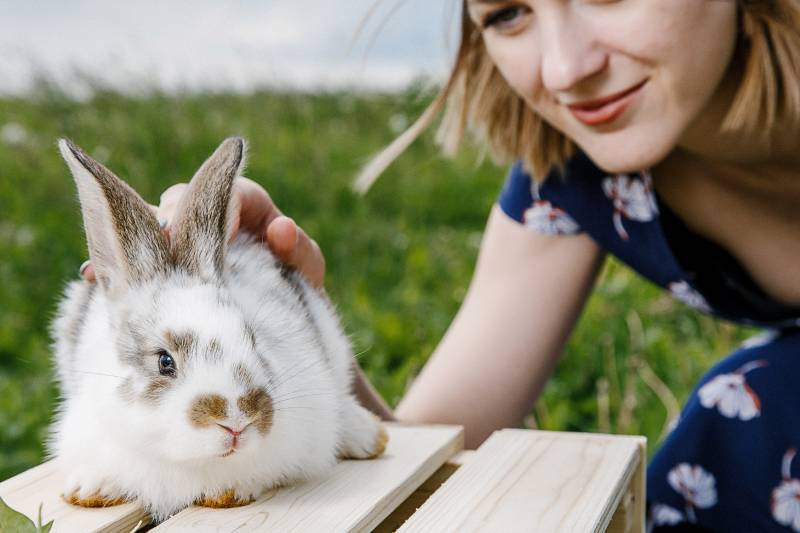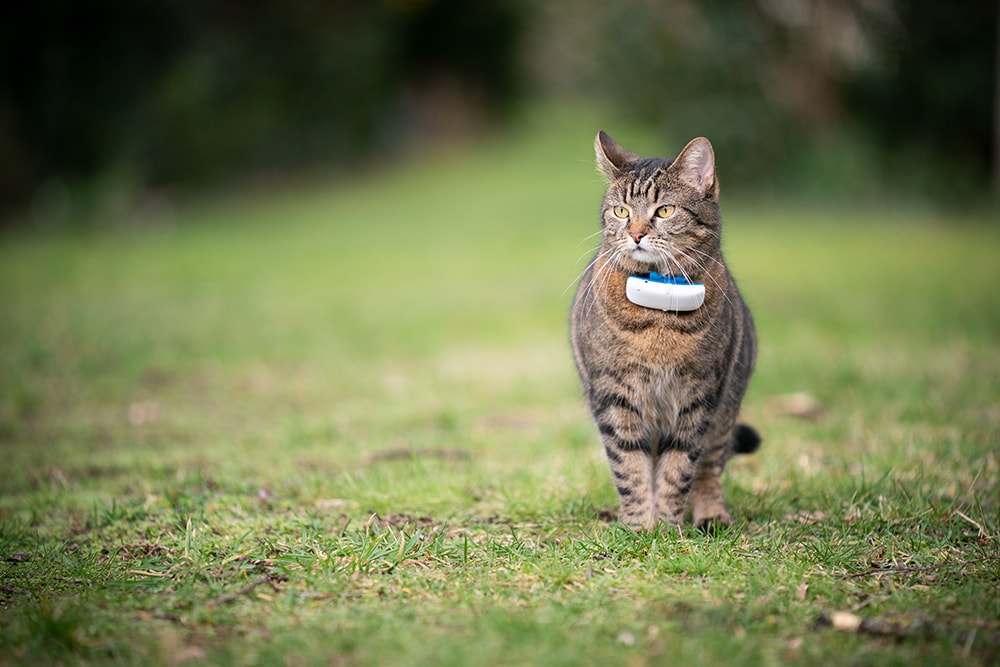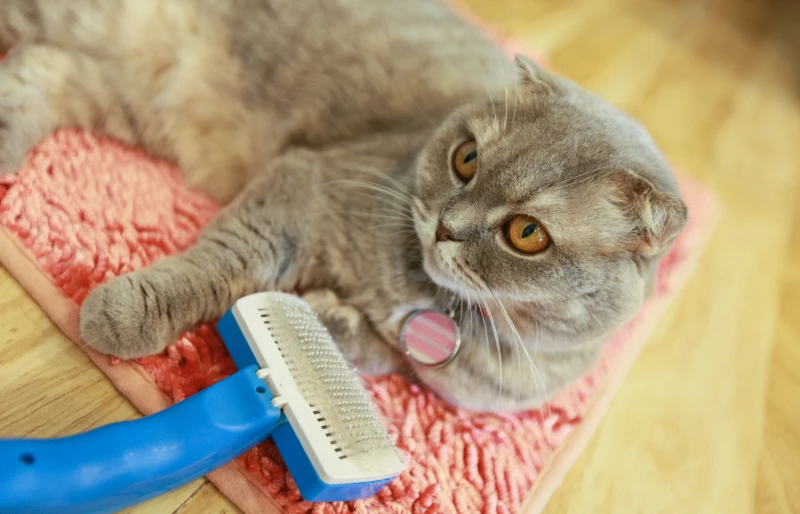It isn’t common to camp with a rabbit, but it is totally possible if you prepare properly! Rabbits are a bit challenging to take camping because they are prey animals, which leaves them vulnerable to predators. Also, some breeds are more skittish than others, making them less suitable for outdoor trips. Even with this ultimate camping checklist, we only recommend bringing along a rabbit that is comfortable in new spaces (an admittedly rare trait among these animals). You don’t want your bunny to be anxious the whole time.
Camping with a rabbit mostly involves providing them with a safe place to stay. You don’t want your pet nibbling on potentially toxic plants or other unsafe objects, so it’s crucial to have a way to keep them away from such items, especially when you aren’t directly supervising them.
To help keep your bunny safe and content, here is a list of items that you should bring.

The 5 Tips for Camping With Your Rabbit
1. Food
You should bring your rabbit’s usual food, which likely consists of hay and pellets. Don’t forget your usual food scoop and feeding dishes. You can find small dishes designed for camping online. Often, those designed for cats work well for rabbits, as they usually fold up, making them easier to carry.
Hauling a bunch of hay with you isn’t always easy. However, your rabbit will need hay daily, so this isn’t something you should skip. Don’t skimp on food or allow your rabbit to consume plants that you find around the campsite. These plants are likely unsafe and shouldn’t be consumed by your pet.
Your rabbit may eat slightly more while camping, as they may exert more energy. However, the opposite could be just as true too. Some rabbits may not eat because they’re in a new environment.
You may want to bring a few treats. Bananas and similar fruits can encourage rabbits to eat if they’re stressed or stubborn. Consider what your pet normally eats as a treat. Now isn’t the best time to introduce new foods, though.
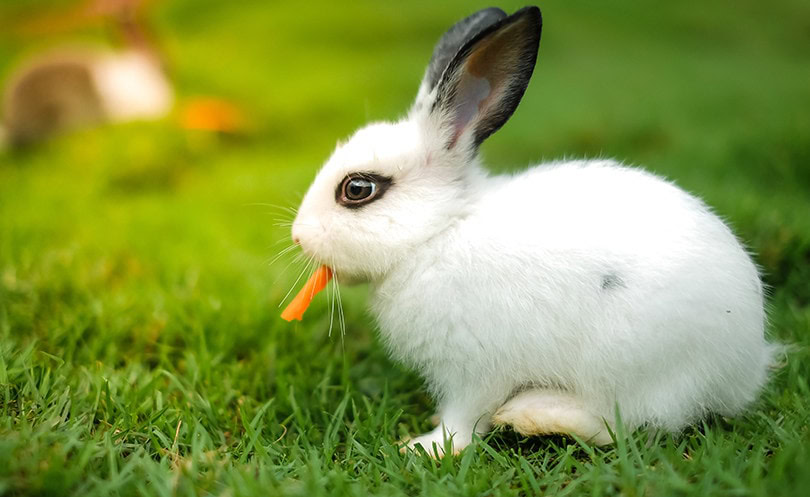
2. First Aid
Always bring basic first aid supplies for you and your rabbit when camping. Research every item you put into your first aid pack, and don’t assume that something is safe for your pet if it’s designed for people. Even many antibiotic creams made for humans aren’t safe for rabbits. That said, many of the items used on humans can also be kept in your rabbit’s first aid pack. For instance, you should bring gauze, bandages, and ear swabs for physical injuries. Nail clippers, styptic powder, and syringes (for cleaning) are vital too.
Consider what the weather will be like when you go camping. You may want to take emergency cooling or heating items in case your bunny’s temperature wanders too far in the wrong direction.
We recommend keeping your first aid supplies and your rabbit’s first aid supplies in separate places. You don’t want to question what’s safe for your pet in an emergency.
3. Pen
Your rabbit will spend much of their time inside a pen while camping. It isn’t safe to let your bunny wander around. They could become prey for predators or nibble on a toxic plant. Keep them inside a safe pen unless you’re watching them directly.
The pen should have solid sides that prevent the rabbit from getting out. It should also have a floor, which prevents your pet from nibbling on plants or catching diseases from the dirt. You do not necessarily want your rabbit hopping around the campsite’s dirt without direct supervision.
Consider a top for the pen too. A net works well if you can adhere it safely to the pen. While you typically don’t have to worry about your rabbit jumping out, you do have to worry about birds of prey and other animals getting in. A simple net can save your bunny’s life, so don’t skip this step.
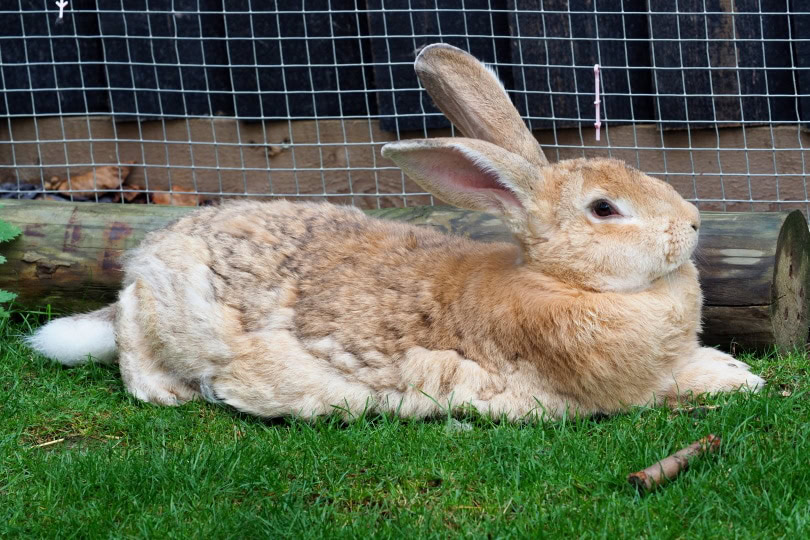
4. Litter Box
When at the campsite, your rabbit will need to utilize a litter box. Letting your pet use the bathroom wherever probably isn’t allowed at the campsite, but they will need somewhere to go when inside the pen. Bringing their usual litter box is the easiest way to accomplish this.
Of course, some rabbits don’t use their litter box well when in a new place. Therefore, you should expect your rabbit to make a few messes. However, we don’t recommend just skipping the litter box altogether.
Have a disposal plan for all your rabbit’s waste. If you’re at a larger campsite, trash cans will probably be available. However, you may need to ask where it’s okay to throw out droppings, as some trash cans may not be suitable.
5. Cleaning Supplies
It’s important to keep your rabbit’s enclosure clean when camping. Even if your pet never has an accident at home, they may when they’re put in a new environment like a campsite. Rabbits aren’t the most dependable creatures in new, scary situations. Therefore, you should plan on your bunny having a few accidents.
Bring whatever cleaning supplies you typically use to the campsite. Have them on hand, just in case.
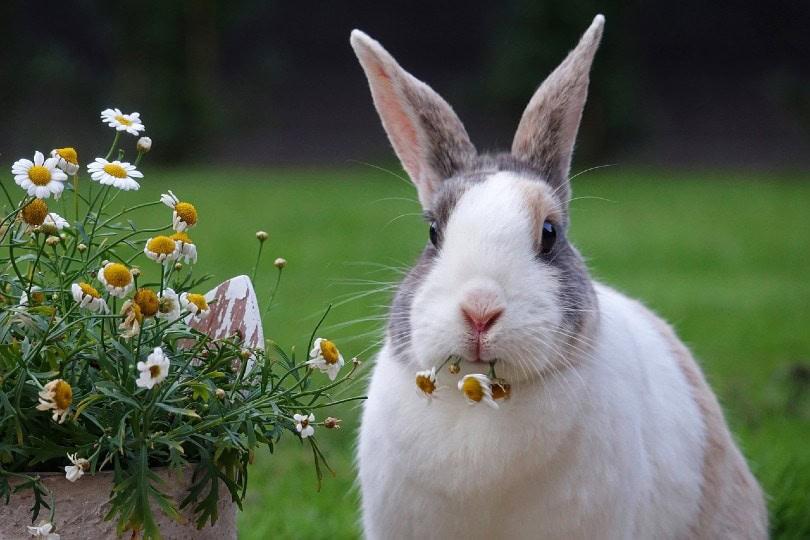

Conclusion
Rabbits aren’t typical camping buddies. However, that doesn’t mean bringing yours to a campsite is impossible. Instead, you must plan carefully to ensure that all your pet’s needs are met. Food and first aid supplies should be the first things on your list. Bring your bunny’s usual food to prevent stomach upset (and a few treats to encourage eating).
Your rabbit’s shelter is particularly important while camping; we recommend a pen that is covered on all sides, including the top and bottom.
Cleaning supplies can be easily overlooked but they’re potentially lifesaving. Uncleanliness tends to be more of an issue when camping, as bugs can quickly become a problem. Therefore, be sure you have something to get your rabbit clean with if they have an accident.
Featured Image Credit: Liuba Bilyk, Shutterstock
